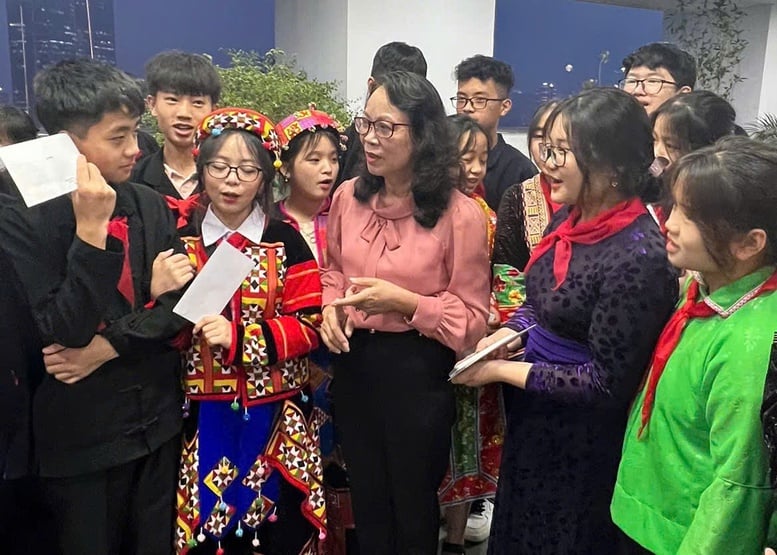
Former Deputy Minister, Vice Chairwoman of the Ethnic Committee (now the Ministry of Ethnic Minorities and Religions ) Hoang Thi Hanh talks with ethnic minority students - Photo: NVCC
"The girls in my village, everyone has to accept it, but not me."
Born and raised in Ao Bon village, Chan Thinh commune, Van Chan district, Yen Bai province (now Chan Thinh commune, Lao Cai province), a remote and poor mountainous area, in the 70s of the last century, Ms. Hoang Thi Hanh soon realized that, among the smooth folk songs, the stilt houses hidden at the foot of the mountain, bad customs and prejudices were like invisible strings tying up women's lives.
"Some women in my village serve their husbands unconditionally, forgetting themselves, especially after village festivals, when men are drunk and order their wives and children around in all sorts of unfair ways... while the women are resigned to the point of humiliation. But for me at that time, a thought came to mind: I must study to change. Study to understand, to help people, to break down unfair prejudices against women, especially ethnic minority women," Ms. Hoang Thi Hanh shared.
That year, Chan Thinh commune had only 1-2 girls who finished high school. Ms. Hanh was one of those rare girls. She was a good student and was admitted directly to Van Chan High School, 18km from her home. Every week, she and her classmates carried rice, cassava, vegetables and salt on their shoulders and walked to school on Sunday afternoons, then returned home on Saturday afternoons.
"Each person carried about 4-5kg: 1kg of rice, 2kg of cassava, some vegetables, salt, shrimp paste, galangal, enough for the whole week. We stayed at local people's houses. Later, when I made policies for ethnic minority students, I realized that my friends and I were boarding students who were supported by local people," Ms. Hanh said.
Those were school years not only battling hunger and cold, but also the courage to fight against gender prejudice, the gossips "why do girls study so much", and pressure from their own family. Parents supported, but many times had to endure pressure from relatives and the community because "they let their daughters go to school instead of marrying them off early".
In 1979, she entered the Hanoi Pedagogical University I, Faculty of Literature without having to take the entrance exam. That year, for the first time, the Ministry of Universities and Vocational Secondary Schools issued a special policy for students in the national excellent student team, allowing them to enter directly to the Pedagogical University I with the goal of training core teachers - the "main machines" for the country's comprehensive education .
"One summer, I brought my school friends home to visit. I saw my father happily welcoming the guests, then quietly took a cloth bag and went out to borrow rice to cook for them. That day, eating a bowl of rice mixed with cassava, I choked up and told myself that I had to study really hard and diligently to not let down my parents' love," Ms. Hanh emotionally recalled.
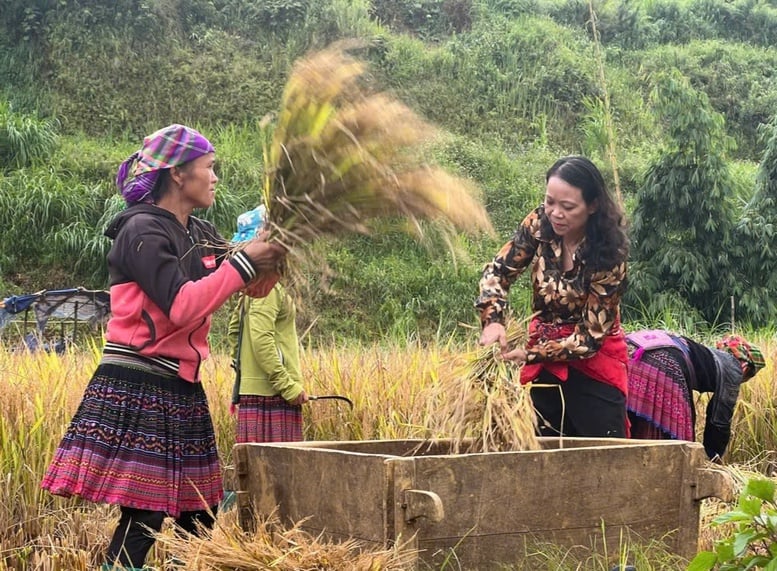
Ms. Hoang Thi Hanh: "No one chooses where they were born. But we have the right to choose how we live. I choose to live a decent and dedicated life, to make the Tay women's colors more radiant" - Photo: NVCC
Not only impart knowledge, but also inspire
After graduating, Ms. Hoang Thi Hanh had an easy choice in a favorable place, but decided to return to her hometown because she thought: "They need me more. I understand what they say, I know how to convey Party and State policies into concrete actions for the people."
11 years of being both a manager and a teacher in the highlands, teaching from high school students, supplementary education to primary school teachers... is a journey of not only imparting knowledge, but also inspiring and guiding generations of students (especially girls) to have the faith to overcome gender prejudice so that their dreams are not drowned in remote areas.
In 1991, the country was in trouble, teachers' salaries were low, and they ate 13 kg of rice per month. Students went to school in communes in the district, many of them stayed in boarding houses around the school. Every time they were late for class, after the 4th or 5th period, teachers and students had to work hard to cook. Rice was mixed with cassava up to 2/3, wild vegetables and salt. Laughter was still loud.
"One afternoon, a short Tay student quietly came to see the teacher to ask for leave from school: His mother was sick and could not dig for cassava, the rice in the field was still red-tailed and had not been harvested yet, and he had no money to pay tuition and buy paper and notebooks. Looking at the student, he was absent-minded, tears were about to fall. When he turned away, I ran after him, invited him to come home to live with the family, to share a meal mixed with cassava, water spinach, shrimp paste and Dao tree powder (Bang tree - a famine-season dish of the Tay people). Later, he graduated, went to teacher training school and is now the principal of an elementary school in Thuong Bang La, Lao Cai. I will never forget those bowls of mixed rice, a few grains of salt, and the sincere smiles of the students that day," Ms. Hanh emotionally recalled.
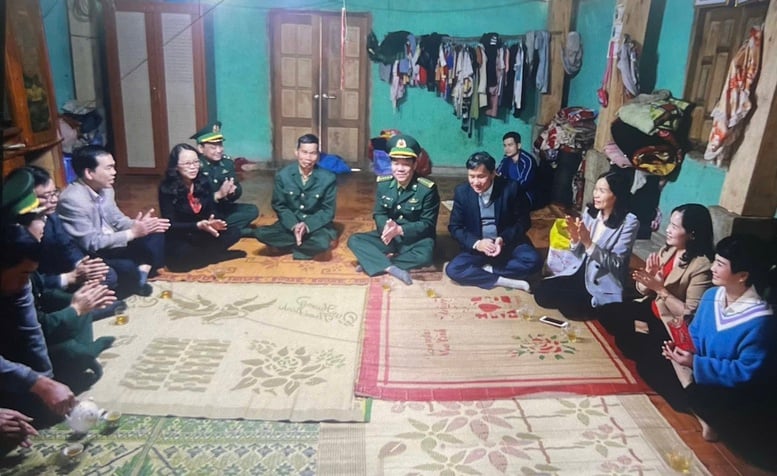
She has been present in almost all border areas of Vietnam - Laos, Vietnam - China, from Huoi Khon to Meo Vac, Ha Giang... - Photo: NVCC
Overcome barriers, seize opportunities and continue the journey of community development
After 11 years working in the education sector, Ms. Hoang Thi Hanh continues to be entrusted with many important responsibilities: from Deputy Secretary of the District Youth Union, Vice Chairman of Nghia Lo town, Director of the Department of Culture, Vice Chairman of the Provincial People's Committee, Head of the Mass Mobilization Committee, Head of the Department of Ethnic and Religious Affairs, to Deputy Head of the Northwest Steering Committee, then Deputy Minister - Vice Chairman of the Ethnic Committee.
On her journey of ethnic work, she has been present in almost all border areas of Vietnam - Laos, Vietnam - China, from Huoi Khon to Meo Vac, Ha Giang... Each trip, each meeting has reinforced one thing that has always bothered her: developing ethnic minority and mountainous areas still faces many challenges, of which education is the biggest concern.
Although the State has had many strong investment policies, up to now about 15% of ethnic minorities are still not fluent in Vietnamese (including those who have never attended school and those who are illiterate).
The reason is not only due to the difficult socio-economic conditions, but also due to people's awareness of the role of learning in modern life. If the community does not understand the value of learning, it will be difficult to create consensus in maintaining and developing education.
In addition, inequality in access to education still exists. Ethnic minority students, especially female students from the Mong, Thai, and Khmer ethnic groups, despite belonging to large ethnic groups, still have very low rates of high school enrollment.
Current education policies mainly focus on investment in Region III (particularly disadvantaged areas), while ethnic minority students in Region I and Region II, who are children of poor households, lack adequate support. Many children, due to family circumstances, have to drop out of school early or only finish junior high school.
This situation directly affects the development of ethnic minority cadres, especially female cadres, who play an important role in the sustainable development of the community. To change, it is necessary to detect, nurture and create conditions for ethnic minority students right from the initial educational foundation.
"If we want students to have the motivation and opportunity to study, we need practical support policies. I always wonder how to provide students with safe boarding accommodation and enough meals so they can focus on studying without having to worry about food and clothing," Ms. Hanh shared.
These concerns have been gradually concretized in current educational policies for ethnic minority students. In particular, all three National Target Programs place education in mountainous areas as an important content. Localities are also making efforts to mobilize resources to maintain and improve the quality of universal education and eliminate illiteracy at primary and secondary levels.
Ms. Hanh emotionally shared: "I am a lucky person to be discovered, trained, given opportunities and assigned tasks by the Party and State. From a teacher in the highlands, I have had the opportunity to contribute in many positions, from district, provincial to central levels. Without the attention of the organization and my own efforts, it would be difficult for me to go such a long way."
The Party and the State always strive to ensure that no one is left behind. But to be able to go far, each person – especially the young generation of ethnic minorities – needs to boldly overcome their own barriers, seize opportunities and proactively continue the development journey of their community.
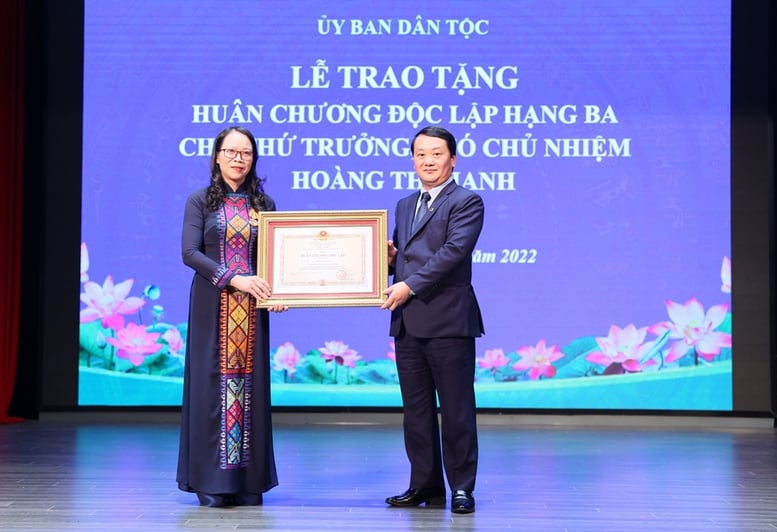
On November 30, 2022, the Ethnic Committee solemnly held a ceremony to award the Third Class Independence Medal to former Deputy Minister and Vice Chairwoman of the Ethnic Committee Hoang Thi Hanh.
" Bloom like a flower, even among dry rocks "
Sending a message to young people, especially ethnic minority girls, Ms. Hanh advised: "Live a meaningful and valuable life. Don't wait for anyone to support you, don't wait for favorable circumstances to act. Bloom like a flower, even in the middle of dry rocks."
She added, her voice softening but her eyes firm: "It will be harder for girls than men to walk the same path. But you will also be stronger if you overcome it."
Retired for more than 2 years, Ms. Hoang Thi Hanh still works hard to teach, inspire, and advise many domestic and foreign organizations on ethnic policies, gender equality, and highland development.
"No one chooses where they are born. But we have the right to choose how we live. I choose to live a kind and dedicated life, to make the Tay women's colors brighter," she said, smiling with a smile that is both gentle and full of inner strength.
Son Hao
Source: https://baochinhphu.vn/tu-lang-ao-bon-den-trung-uong-hanh-trinh-vuot-len-dinh-kien-cua-mot-nguoi-phu-nu-tay-102251020082345846.htm





![[Photo] National Assembly Chairman Tran Thanh Man attends the VinFuture 2025 Award Ceremony](/_next/image?url=https%3A%2F%2Fvphoto.vietnam.vn%2Fthumb%2F1200x675%2Fvietnam%2Fresource%2FIMAGE%2F2025%2F12%2F05%2F1764951162416_2628509768338816493-6995-jpg.webp&w=3840&q=75)

![[Photo] 60th Anniversary of the Founding of the Vietnam Association of Photographic Artists](/_next/image?url=https%3A%2F%2Fvphoto.vietnam.vn%2Fthumb%2F1200x675%2Fvietnam%2Fresource%2FIMAGE%2F2025%2F12%2F05%2F1764935864512_a1-bnd-0841-9740-jpg.webp&w=3840&q=75)
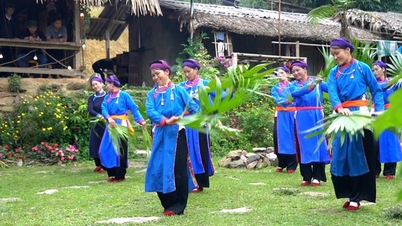

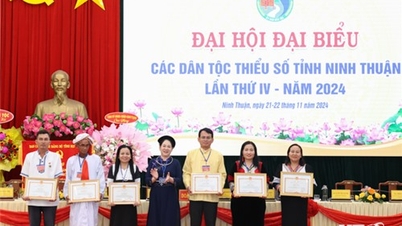

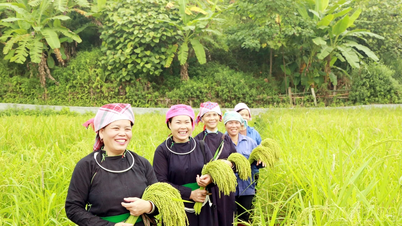













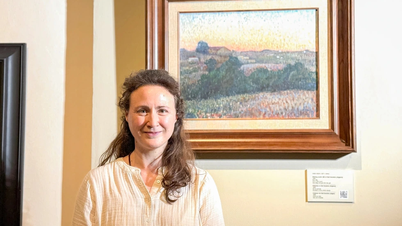





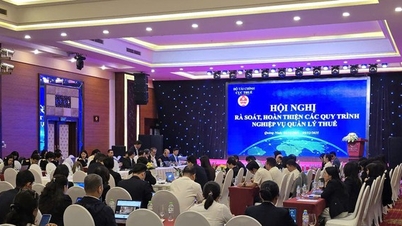
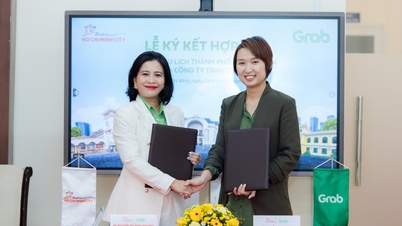
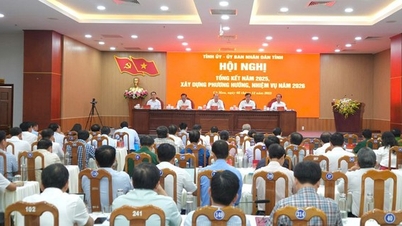
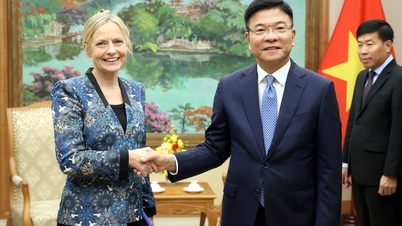
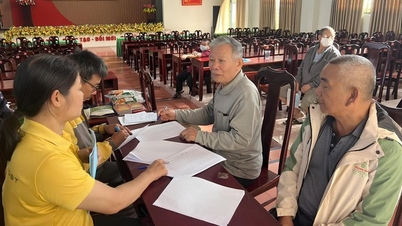
































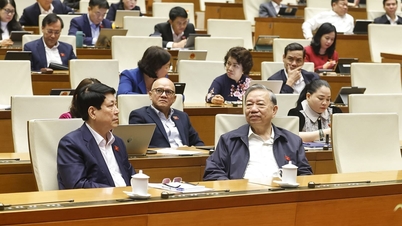










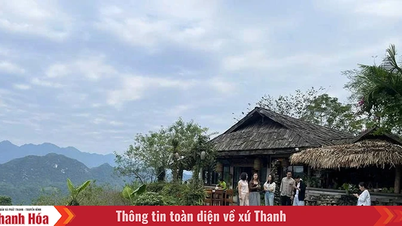

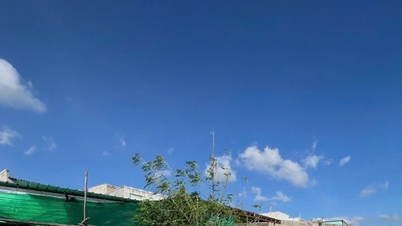
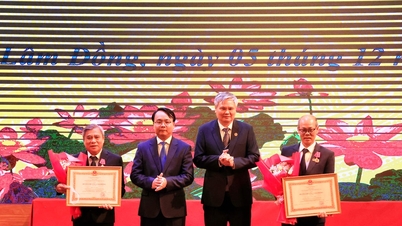
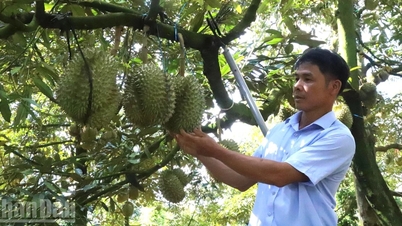
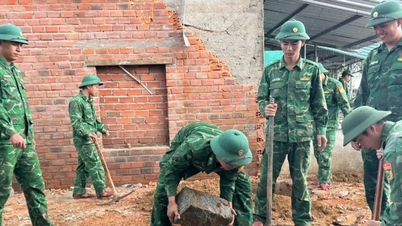










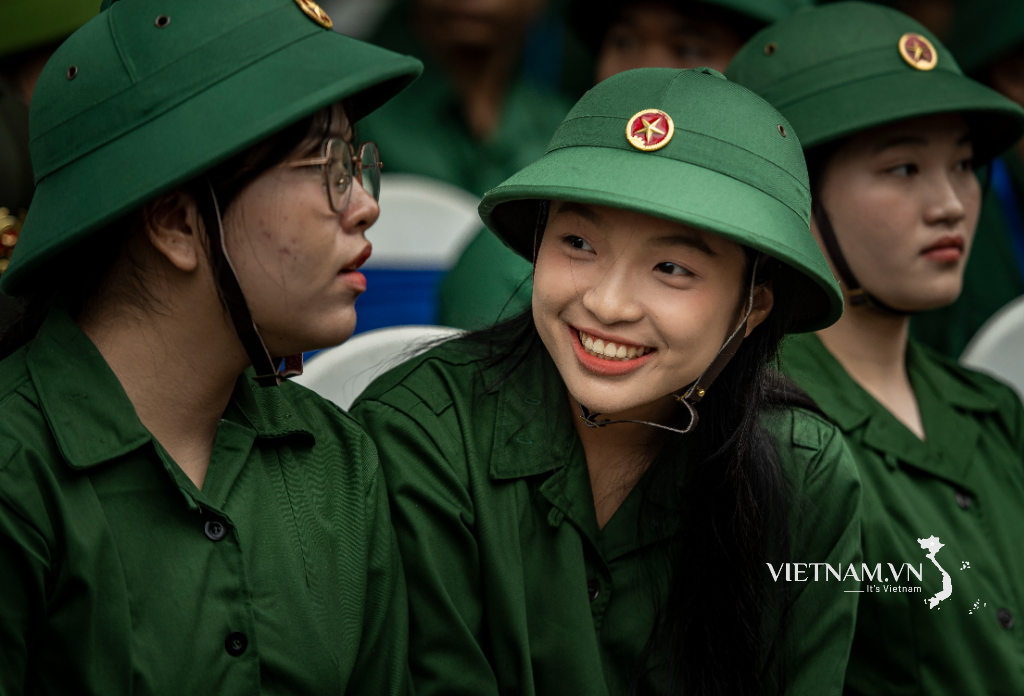






Comment (0)